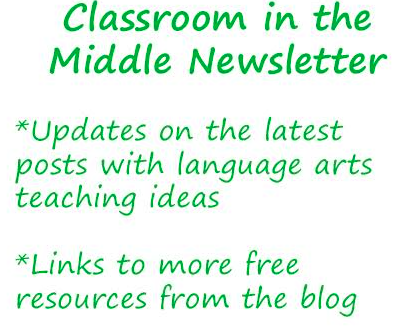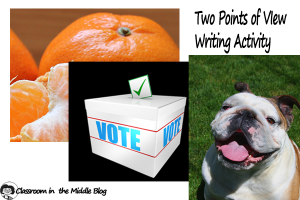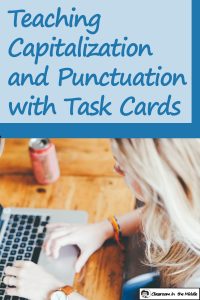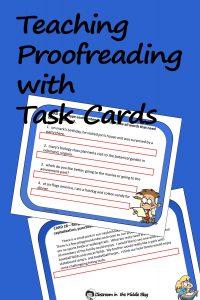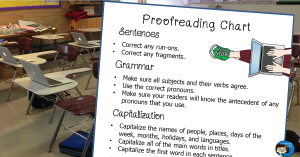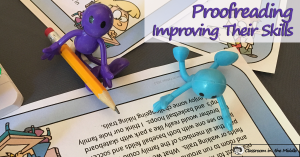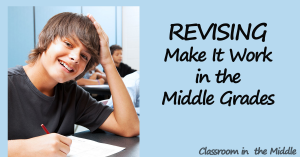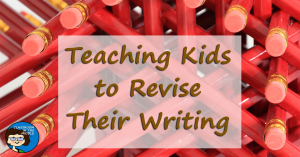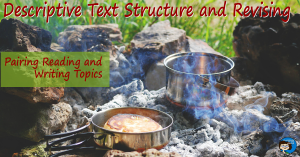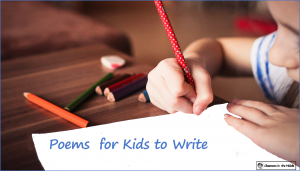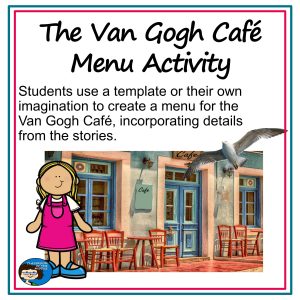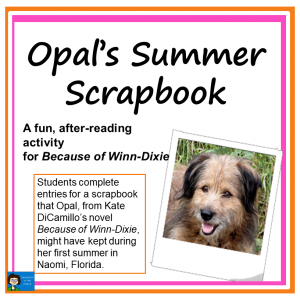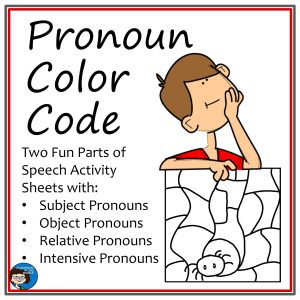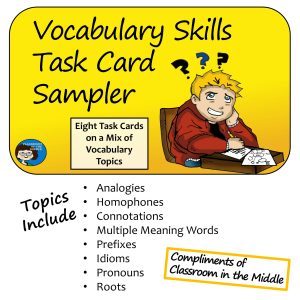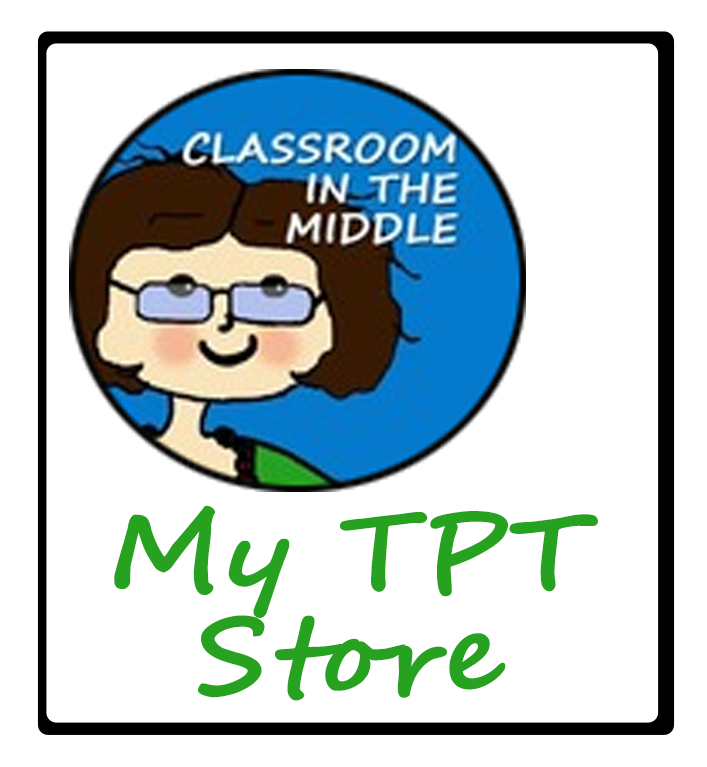Writing skills is such a big topic, there are so many ways to approach it, and unlike some other language arts topics, it can be taught in a variety of sequences. Probably that’s why teachers spend a lot of time organizing and reorganizing their writing lesson plans.
Over the past several years, I’ve written a lot of blog posts about writing skills, too. So I thought I would do a little more organizing myself and present a round-up of posts about writing instruction and writing skills.
I’ve divided the posts onto three groups: Types of Writing, Editing and Proofreading, and Additional Writing Activities. Types of Writing includes posts about specific kinds of writing assignments, such as narrative writing, as well as a post with links to free writing prompts. Revising and Proofreading includes posts about lessons in grammar, capitalization and punctuation, and other specifics that kids need to look for as they proofread, as well as posts specifically about the revising step of the writing process. And the Additional Writing Activities include posts about lessons that don’t fit neatly into one category such as narrative, informative, or opinion writing.
TYPES OF WRITING
Middle graders so love working together with their classmates that what could be better than a group activity when it’s time to tackle the skill of narrative writing? Read about it in Writing a Group Narrative.
Two Points of View Writing Activity, a blog post which includes links to free activity sheets, presents a lesson idea that incorporates both opinion writing and media literacy as kids both recognize particular points of view and then try writing about the same topic but from a different point of view.
REVISING AND PROOFREADING
Teaching Capitalization and Punctuation with Task Cards is a post which discusses capitalization and punctuation situations that are especially good to work on with middle graders, an important consideration since, by upper elementary or middle school, kids have covered, if not mastered, lots of capitalization and punctuation rules, but of course there are also many more that they still need to work on.
Teaching Proofreading with Task Cards goes into additional areas that kids should learn to look for as they work their way through the steps of the writing process – areas such as spelling errors, run-on sentences, and various grammatical situations that can easily trip up young writers.
Subject-Verb Agreement Difficulties discusses a grammar topic that is often taught on its own, but as with other grammar skills, of course the point is for kids to eventually incorporate these skills into their own writing and proofreading.
Proofreading Chart is just what it sounds like – a free proofreading chart for you to download. Post it on your classroom wall or give students individual copies for their notebooks.
If you’re ready for some proofreading practice resources, check out the ideas in Proofreading – Improving Their Skills. You’ll see task cards for proofreading and revising, plus sentence revising activity sheets.
Are you looking for teaching ideas specifically for revising, rather than proofreading? Revising activities can definitely be harder to find. Revising – Making It Work in the Middle Grades has ideas for working on specific revising skills.
Here’s More in Revising – Teaching Kids to Revise Their Writing.
MORE WRITING ACTIVITIES
Invent a Character, Invent a Setting presents ideas for combining the teaching of the reading skills of characterization and setting with a narrative writing lesson that also focuses on characterization and setting for a fun activity.
Descriptive Text Structure and Revising is another post with ideas for combining reading and writing lessons – in this case, the descriptive text structure and descriptive writing. The post includes ideas for fun, quick activities to introduce your lessons.
Poems for Kids to Write suggests ideas for using kids’ poetry writing to teach or reinforce a variety of language arts skills. Suggestions include fun activities and resources such as slide presentations and sets of task cards.

